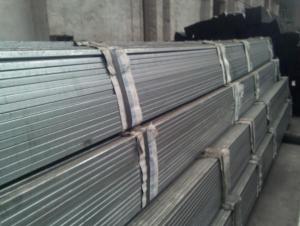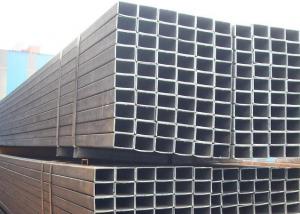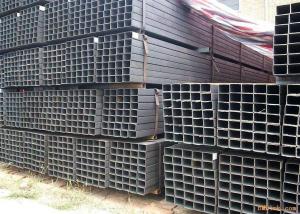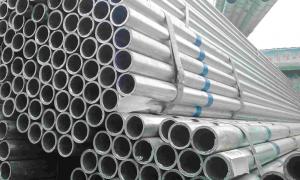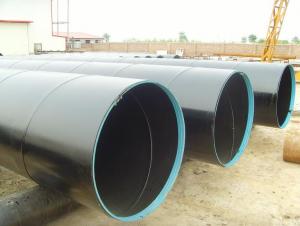High Quality Hollow Section-Rectangle Tubes
- Loading Port:
- China Main Port
- Payment Terms:
- TT or L/C
- Min Order Qty:
- 5 m.t. m.t.
- Supply Capability:
- Based On Order m.t./month
OKorder Service Pledge
OKorder Financial Service
You Might Also Like
High Quality Hollow Section-Square Tubes
Usage/Applications Of High Quality Hollow Section-Square Tubes:
It is widely used in building, machine, chemical equipment, automobile industrial, container, it is also applied to agriculture and mine machine.
Standard Of High Quality Hollow Section-Square Tubes:
ASTM A500, GB6728
Steel Grade Of High Quality Hollow Section-Square Tubes:
ASTM A500: A, B, C
GB6728:Q195,Q215,Q235,Q345
Size of High Quality High Quality Hollow Section-Square Tubes:
*Remark: Besides below sizes, we also can arrange production based on requirement of customers
|
Sizee(mm) |
Thickness(mm) |
|
20×10 |
0.6-1.0 |
|
25×12 |
0.6-1.0 |
|
38×19 |
0.6-1.5 |
|
50×25 |
0.6-1.5 |
|
50×30 |
1.6-3.0 |
|
60×40 |
1.5-3.5 |
|
75×50 |
1.5-4.0 |
|
80×40 |
1.5-4.0 |
|
100×50 |
2.0-6.0 |
|
100×60 |
2.0-6.0 |
|
100×75 |
2.0-6.0 |
|
120×60 |
3.0-6.0 |
|
120×80 |
3.0-6.0 |
|
125×50 |
3.0-6.0 |
|
125×75 |
3.0-6.0 |
|
150×50 |
3.0-6.0 |
|
150×75 |
3.0-6.0 |
|
150×100 |
4.0-12 |
|
160×80 |
4.0-6.0 |
|
175×100 |
4.0-12 |
|
200×100 |
4.0-12 |
|
200×150 |
4.0-12 |
|
250×150 |
5.0-12 |
|
300×200 |
5.0-12 |
|
400×200 |
5.0-12 |
Chemical Composition Of High Quality Hollow Section-Square Tubes (%)
|
Chemical Requirement | ||||
|
|
Composition % | |||
|
|
Grade A |
Grade B | ||
|
|
Heat |
Product |
Heat |
Product |
|
Element |
analysis |
analysis |
analysis |
analysis |
|
Carbon max |
0.26 |
0.3 |
0.22 |
0.26 |
|
Manganese max |
… |
… |
1.4 |
1.45 |
|
Phosphorus, max |
0.035 |
0.045 |
0.03 |
0.04 |
|
Sulfur max |
0.035 |
0.045 |
0.02 |
0.03 |
|
Copper, when copper steel is specified, min |
0.2 |
0.18 |
0.2 |
0.18 |
|
Where an ellipsis (...)appears in this table, there is no requirement | ||||
|
For each reduction of 0.01 percentage point below the specified maximum for carton, and increase of 0.06 percentage point above the specified maximum for manganese is permitted, up to a maximum of 1.50% by heat analysis and 1.6% by product analysis | ||||
Mechanical Properties Of High Quality Hollow Section-Square Tubes
|
Tensile Requirement | ||
|
|
Grade A |
Grade B |
|
Tensile strength, min, psi (Mpa) |
48000 (400) |
70000 (483) |
|
Yield strength, min, psi (Mpa) |
36000 (250) |
50000 (345) |
|
Elongation in 2 in. (50.8mm), min, % |
23 |
23 |
GB6728:
|
Steel Grade |
CHEMICAL COMPOSITION |
MECHANICAL PROPERTIES | ||||||
|
|
C (%) |
Si (%) |
Mn (%) |
P(%) Max |
S (%) Max |
YS(Mpa) Min |
TS(Mpa) Min |
El (%) Min |
|
Q195 |
0.06-0.012 |
0.3 |
0.25-0.5 |
0.45 |
0.5 |
195 |
315 |
22 |
|
Q215 |
0.09-0.15 |
0.3 |
0.25-0.55 |
0.45 |
0.5 |
215 |
335 |
22 |
|
Q235 |
0.12-0.22 |
0.3 |
0.3-0.7 |
0.45 |
0.45 |
235 |
375 |
20 |
|
Q345 |
0.20 |
0.55 |
1.0-1.6 |
0.45 |
0.45 |
345 |
510 |
21 |
Packaging & Delivery Of H High Quality Hollow Section-Square Tubes:
Packed in bundles, each bundle with 6-8 steel stripes and 2 nylon strips Or one by one Or Nested into Containers
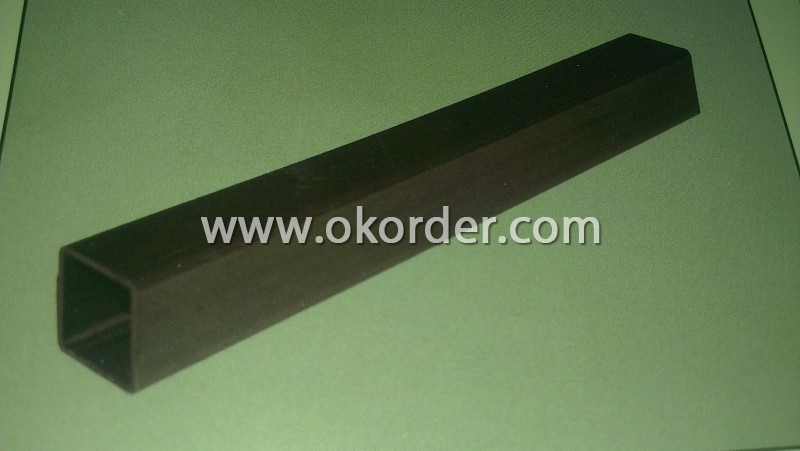
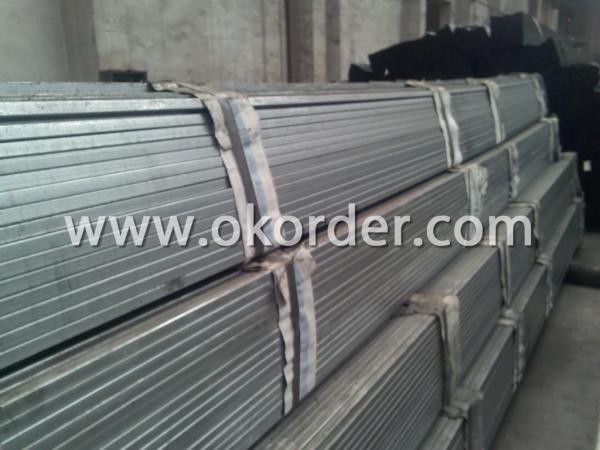
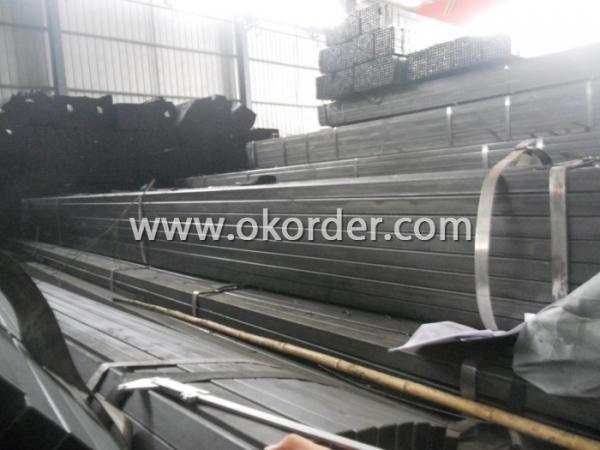
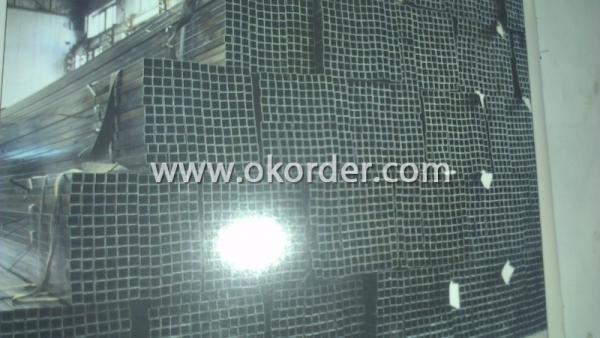
- Q:How are steel pipes used in the construction of skyscrapers?
- Steel pipes are commonly used in the construction of skyscrapers for their strength, durability, and versatility. These pipes are typically used as structural elements, forming the framework of the building, providing support and stability. They are used in the construction of columns, beams, and braces, enabling the building to withstand heavy loads and high winds. Additionally, steel pipes are used for plumbing and mechanical systems, carrying water, gas, and other utilities throughout the building. Their use in skyscrapers ensures the overall strength and integrity of the structure.
- Q:How are steel pipes used in the construction of geothermal power plants?
- Steel pipes are used in the construction of geothermal power plants primarily for two purposes: transporting geothermal fluids and ensuring the structural integrity of the plant. The pipes are used to extract hot water or steam from the geothermal reservoir deep underground and transport it to the surface. These pipes are designed to withstand high temperatures and pressures associated with geothermal fluids. Additionally, steel pipes are also used to distribute the extracted fluids to various parts of the power plant for electricity generation. Moreover, steel pipes are utilized in the construction of the plant's infrastructure, such as the framework, supports, and other structural components, ensuring the overall stability and durability of the geothermal power plant.
- Q:Can steel pipes be used for underground fire protection systems?
- Yes, steel pipes can be used for underground fire protection systems. Steel pipes are commonly used in underground applications due to their durability, strength, and resistance to corrosion. They provide an effective means of delivering water for fire suppression in underground areas, ensuring the safety of the surrounding infrastructure.
- Q:What is the average lifespan of steel pipes in different applications?
- The lifespan of steel pipes in different applications can vary due to various factors, such as the quality of the steel, the environment in which they are used, and the maintenance and care they receive. Water supply lines typically have steel pipes that can last around 50 to 70 years on average. These pipes are often made of high-quality steel and experience less corrosive environments. However, the presence of corrosive substances, water chemistry, and soil conditions can significantly impact their lifespan. For industrial applications like oil and gas pipelines, steel pipes generally have a lifespan ranging from 20 to 50 years. These pipes are exposed to aggressive environments with high temperatures, pressure, and corrosive substances. Extending their lifespan can be achieved through regular inspections, maintenance, and corrosion protection measures. In construction applications, steel pipes used for structural purposes can last an average of 50 to 100 years or longer. These pipes are designed to withstand heavy loads and are often safeguarded by coatings or insulation to prevent corrosion. It's important to understand that these are average lifespans, and individual pipes may have shorter or longer lifespans depending on specific conditions. Ensuring the longevity of steel pipes in different applications can be achieved through regular inspections, maintenance, and timely repairs or replacements when necessary.
- Q:How are steel pipes inspected for defects?
- Steel pipes are typically inspected for defects using various non-destructive testing methods such as ultrasonic testing, magnetic particle inspection, and visual inspection. These techniques help identify any cracks, corrosion, or other defects in the pipes, ensuring their structural integrity and quality.
- Q:What are the different methods of bending steel pipes?
- There are several methods of bending steel pipes, including hot bending, cold bending, mandrel bending, rotary draw bending, and induction bending.
- Q:Can steel pipes be used for underground cooling systems?
- Indeed, underground cooling systems can make use of steel pipes. Thanks to their durability, strength, and resistance to corrosion, steel pipes are widely employed in numerous applications, including underground cooling systems. They are adept at handling the rigorous demands of cooling systems, such as high pressure and temperature requirements. Moreover, steel pipes can be conveniently installed and maintained by means of welding or threading them together. Nonetheless, it is crucial to ensure that the steel pipes are adequately coated or insulated in order to avert corrosion and uphold heat transfer efficiency.
- Q:How are steel pipes used in the construction of wastewater treatment plants?
- Steel pipes are commonly used in the construction of wastewater treatment plants for various purposes, such as transporting and distributing water, chemicals, and sludge within the facility. They are also used for constructing the main drainage systems, including sewer lines, stormwater drains, and effluent pipes, ensuring efficient and reliable flow of wastewater. Additionally, steel pipes are utilized for constructing the structural framework of treatment units, such as settling tanks, clarifiers, and aeration systems, providing stability and durability to withstand the harsh conditions of wastewater treatment processes.
- Q:What is the role of steel pipes in power plants?
- Steel pipes play a crucial role in power plants as they are used for the transportation of various fluids, such as water, steam, and oil, throughout the facility. They provide a reliable and durable means of conveying these substances under high pressure and extreme temperatures, ensuring the smooth operation of power generation processes. Additionally, steel pipes are also utilized for structural support in power plant construction, serving as a vital component in the overall infrastructure of the facility.
- Q:Can steel pipes be used for conveying slurry?
- Yes, steel pipes can be used for conveying slurry. Steel pipes are widely used in various industries for transporting different types of fluids, including slurry. Slurry is a mixture of solid particles suspended in a liquid, and steel pipes are well-suited for handling such mixtures due to their strength, durability, and resistance to corrosion. Steel pipes are also known for their high-pressure and high-temperature capabilities, making them suitable for conveying slurry in demanding applications such as mining, dredging, and wastewater treatment. Additionally, steel pipes can be easily welded, allowing for the construction of long pipelines that can efficiently transport slurry over long distances. However, it is important to consider the specific characteristics of the slurry being conveyed, such as particle size, density, and abrasiveness, to ensure proper pipe selection and design for optimal performance and longevity.
1. Manufacturer Overview |
|
|---|---|
| Location | Hebei, China |
| Year Established | 1988 |
| Annual Output Value | Above One Hundred Million RMB |
| Main Markets | Main land; Southeast Asia; Middle East; Africa |
| Company Certifications | ISO 9002:2010;API 5L |
2. Manufacturer Certificates |
|
|---|---|
| a) Certification Name | |
| Range | |
| Reference | |
| Validity Period | |
3. Manufacturer Capability |
|
|---|---|
| a)Trade Capacity | |
| Nearest Port | Tianjin |
| Export Percentage | 30%-50% |
| No.of Employees in Trade Department | 201-500 People |
| Language Spoken: | English; Chinese |
| b)Factory Information | |
| Factory Size: | 50,000 square meters |
| No. of Production Lines | Above 15 |
| Contract Manufacturing | Meicai Metal Trading Co.Ltd |
| Product Price Range | Average |
Send your message to us
High Quality Hollow Section-Rectangle Tubes
- Loading Port:
- China Main Port
- Payment Terms:
- TT or L/C
- Min Order Qty:
- 5 m.t. m.t.
- Supply Capability:
- Based On Order m.t./month
OKorder Service Pledge
OKorder Financial Service
Similar products
New products
Hot products
Hot Searches
Related keywords

